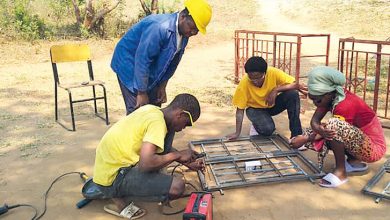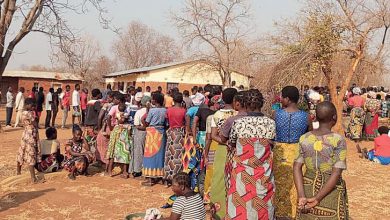K65bn project to boost health systems resilience
Malawi Government has partnered Save the Children in a $37 million (about K65 billion) project to strengthen the country’s healthcare system to withstand future climate shocks.
The Climate-Health and Wellbeing Resilience in Communities (CHWBRC) project, funded by the Green Climate Fund (GCF), is expected to directly benefit over 1.7 million people across six high-risk districts in the Southern Region over the next six years.

Speaking in Lilongwe on Wednesday during the launch, Minister of Health Khumbize Kandodo Chiponda described the project as a crucial intervention at a time when climate change is increasingly undermining human health.
She said: “Climate change is significantly impacting countries like Malawi, leading to erratic rainfall, rising temperatures, and more frequent disasters such as floods and cyclones. These shocks disrupt agriculture, food security and, most critically, human health.”
Chiponda said Malawi was among the first countries to endorse the World Health Organisation’s climate-health initiative during COP26 in Glasgow, adding that through this commitment, government has already undertaken a range of adaptation and mitigation efforts, including the distribution of insecticide-treated mosquito nets and the installation of solar power systems in health facilities.
In his remarks, Save the Children Malawi executive director Bhekimpilo Kanye said the initiative comes at a critical moment for the country.
“This project focuses on two very important issues: climate change and health resilience. It will reach 1.7 million people across the six districts and run for six years,” he said.
Beneficiary districts for the project implemented by Save the Children International (SCI) in partnership with the Ministry of Health, Creccom and Cadecom are Zomba, Phalombe, Machinga, Balaka, Mangochi and one additional district yet to be confirmed.
Save the Children director of programmes Chakufwa Munthali underscored the initiative’s three core objectives.
He said the project aims to reduce the risk of climate-sensitive diseases such as malaria, cholera and malnutrition; strengthen health infrastructure to withstand extreme weather events; train healthcare workers in climate-resilient service delivery; and empower local communities to better manage climate-related health risks.
Recent cyclones, which devastated homes and healthcare facilities in some parts of Malawi, have exposed the country’s growing vulnerability to climate-driven disasters. Hundreds of people were displaced, and outbreaks of diseases such as cholera highlighted the fragility of local health systems. The new initiative seeks to address these risks by building resilience across communities and the health sector.





